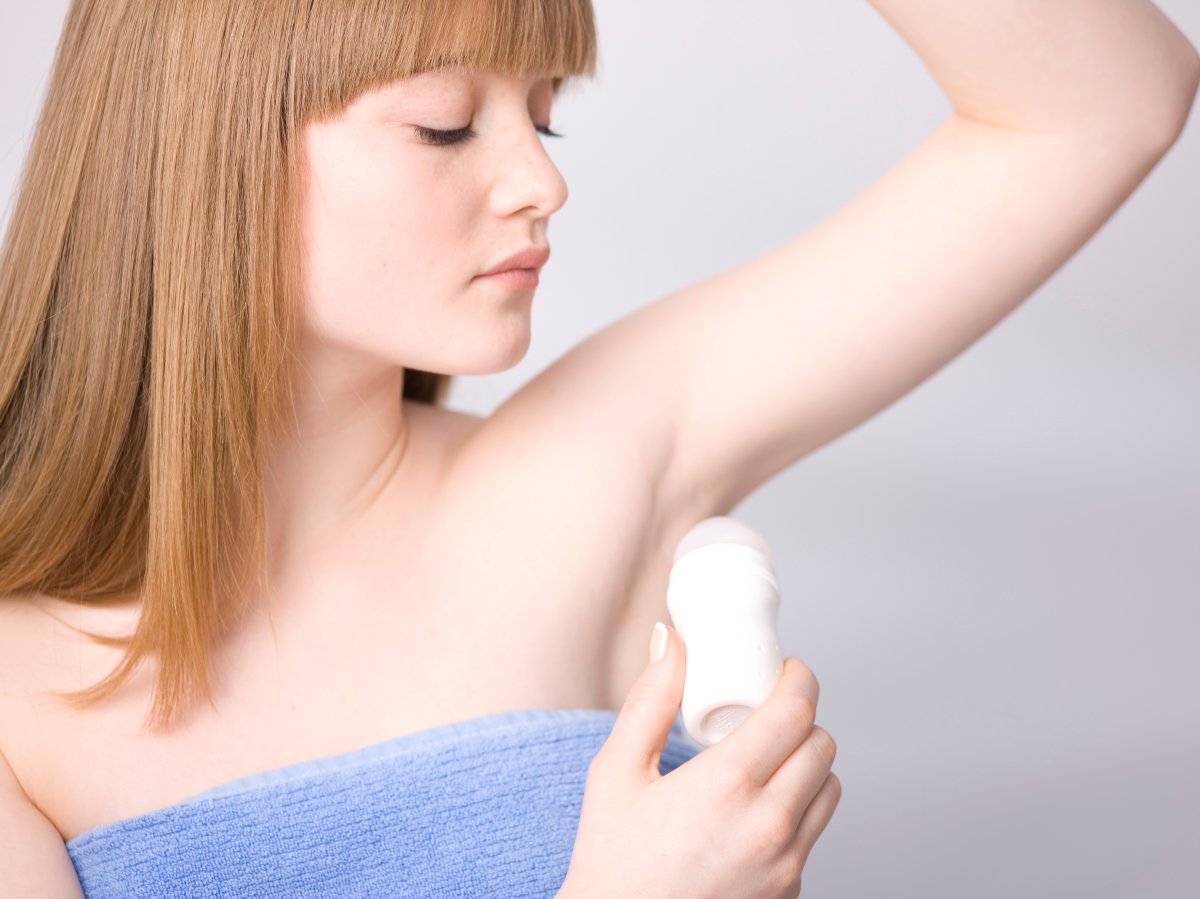In a scientific debate that rages on, a new study out of Geneva claims that aluminium salts in antiperspirants and deodorants can trigger the growth of breast cancer-causing tumours.

The University of Geneva study replicated isolated human mammary cells in mice and found that long-term exposure to aluminium salts (the active ingredient in antiperspirant that plugs the sweat glands) caused cells to form tumours and spread. Andre-Pascal Sappino, an oncology professor at the university and co-author of the study, compared the use of aluminium salts to asbestos.
“Asbestos is cheap, has very attractive industrial potential, and it took 50 years to ban it,” he said to European news outlet The Local. “We hope it doesn’t take so long to ban aluminium salts.”
These claims, however, have been hotly contested over the past many years. Despite rumblings in both the scientific and natural health fields since a 2001 study was published on the topic, multiple cancer organizations and experts insist that there is no definitive link between antiperspirant use and cancer.
WATCH: Breast cancer preventative measures

“Any suggested links between aluminium in cosmetics and breast cancer are misleading,” says Darren Praznik, president of the Canadian Cosmetic, Toiletry and Fragrance Association (CCTFA). “For more than 20 years now, studies conducted by scientific and health authorities across the world have not shown any link between aluminium salts used in antiperspirants and breast cancer. Most recently, in 2014, the EU Commission’s Scientific Committee on Consumer Safety reviewed the safety of aluminium salts used in antiperspirants and concluded that there was no ‘plausible evidence’ that aluminium salts could increase the risk of any kind of cancer.”
Similarly, the Canadian Cancer Society‘s website clearly states: “There have been many thorough studies of breast cancer risk that show the use of antiperspirant is not a risk factor for breast cancer.”
While the 2001 study, which was conducted by University of Reading biochemistry professor Philippa Darbre, maintained that aluminium salts and parabens in cosmetics were responsible for the rise in breast cancer rates — she observed that a disproportionate amount of tumours were found in the upper outer quadrant of the breast, which is where we apply deodorant — her study was widely debunked for a variety of reasons. Among them was the fact that while Darbre points to the region of the breast where the most tumours were found and correlates it to the fact that it’s where antiperspirant is used, that is also the area of the breast with the most tissue, therefore it is inherently more likely to develop tumours.
READ MORE: Hormone replacement therapy strongly linked to breast cancer: study
Then there’s the fact that deodorant and antiperspirant are meant to clog the sweat gland, not penetrate it. “When an antiperspirant is applied to the skin surface, it dissolves in the sweat or moisture on the skin surface of the armpit. The dissolved substance forms a gel, which creates a small temporary plug near the top of the sweat gland,” Praznik explains. “They do not enter into the bloodstream or affect the lymph nodes.”
According to the Canadian Cancer Society, the known risk factors for breast cancer include: family history of cancer, BRCA gene mutation, hormone replacement therapy, alcohol consumption and obesity, among others.




Comments